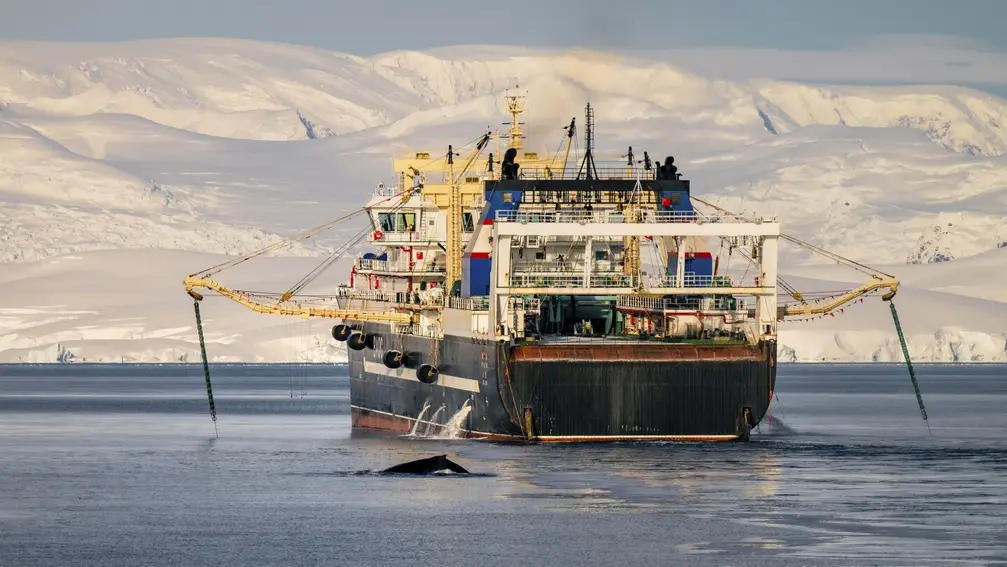T4K3.news
Antarctic krill fishery closes early after catch limit exceeded
The Antarctic krill fishery has been shut down early after surpassing the seasonal limit for the first time.

Officials have closed the Antarctic krill fishery after exceeding the seasonal catch limit.
Krill fishery in Antarctica shut down after record catch limits exceeded
Officials have closed the Antarctic krill fishery earlier than planned after exceeding the seasonal catch limit for the first time on record. The closure was announced following a significant surge in krill catches, which have escalated due to the lapse of a longstanding conservation framework. The Commission for the Conservation of Antarctic Marine Living Resources confirmed the season, originally set to last until December, was cut short after catch levels reached 620,000 metric tons. The failure of international governments to agree on a new management plan has allowed indiscriminate fishing, further threatening vital marine ecosystems dependent on krill.
Key Takeaways
"The unprecedented closure highlights the competition between human activity and marine life."
This quote captures the conflict between commercial fishing and ecological preservation in Antarctica.
"Krill play a crucial role in combating climate change by storing carbon in the ocean."
This emphasizes the significant environmental role krill serve beyond being a food source.
This unprecedented closure highlights the growing tensions between commercial interests and environmental conservation in polar regions. With the demand for krill steadily rising for its oil and as a food source, the impact on marine life is alarming. The international community's inability to establish protective measures reflects a concerning trend: economic pressures are often prioritized over ecological sustainability. The early closure may offer a temporary reprieve, but without robust management, the future of this vital species remains uncertain.
Highlights
- The rapid depletion of krill stocks endangers entire marine ecosystems.
- Closure of the fishery underscores urgent need for sustainable management.
- Human demand for krill clashes with the survival of ocean's giants.
- The future of krill fishing hinges on effective international cooperation.
Concerns over ecological impact of krill fishing
The premature closure of the krill fishery raises concerns about the sustainability of this critical marine resource. The inability of global governance to implement protections poses risks not only to marine ecosystems but also to industries dependent on krill.
Future management of krill fisheries will be critical to protect marine ecosystems.
Enjoyed this? Let your friends know!
Related News

New studies reveal dangers in chatbot interactions

Whole Body MRI Insight vs Cost

Quinyon Mitchell shines with interception in Eagles training camp

McLaren's Norris wins narrow race against teammate Piastri

Edd Straw reveals Hungarian Grand Prix driver rankings

Motorola launches pink Paris Hilton edition Razr+ phone

Lions Falcons preseason snap counts reveal depth battles

Eagles training camp opens with notable performances
